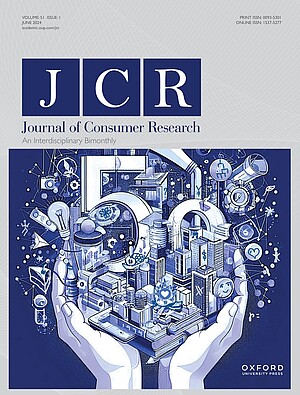Journal of Consumer Research Highlights Work of ERIM PhD Graduates in the Special 50th Anniversary Issue

The Erasmus Research Institute of Management celebrates a remarkable achievement by the Marketing department and our esteemed doctoral alumni. In the special 50th anniversary issue of the Journal of Consumer Research published in June 2024, there are three out of the sixteen featured articles authored by graduates from ERIM's PhD programme. These outstanding achievements are proof of the excellent quality of research at ERIM as one of the top management research institutes in Europe, as well as our PhD programmes and their contribution to the stream of global thought leadership.
This special issue, with unprecedented visibility in the academic community, has attracted consumer researchers around the globe to submit their best work. The published issue contains 16 articles (and 4 editorial reflections). These works encompass important consumer theories and phenomena in the emerging marketplace, as well as reflect the Journal through the years and the consumer research field's academic discipline: relevance, innovativeness, and impact.
Below are the works authored by ERIM PhD graduates:
- 50 years of Context Effects: Merging the Behavioral and Quantitative Perspectives. Ioannis Evangelidis (ERIM PhD, 2015), along with Sudeep Bhatia (University of Pennsylvania), Jonathan Levav (Stanford University), and Itamar Simonson (Stanford University), initiates a compelling dialogue between two streams of research--behavioural and quantitative--to deepen the understanding of context effects on consumer decision-making.
-
Leveraging Digital Advertising Platforms for Consumer Research. Bart De Langhe (ERIM PhD, 2011), together with Michael Braun (Southern Methodist University), Stefano Puntoni (University of Pennsylvania, former Professor at RSM), and Eric Schwartz (University of Michigan), offers an overview of how researchers can draw inferences from the data collected from digital advertising platforms and sheds light on how tools can be effectively leveraged for programmatic consumer research. Eventually, the research calls for transparency among platforms about the behind-the-scenes of their testing tools.
-
The Science of Creating Brand Associations: A Continuous Trinity Model Linking Brand Associations to Learning Processes. Christilene du Plessis (ERIM PhD, 2017), along with co-authors Serena D'Hooge (RSM) and Steven Sweldens (ERIM PhD, 2009), developed the "Continuous Trinity Model of Brand Associations" synthesising 50 years of research on brand associations, which offers insightful and practical implications not only for consumer and learning researchers but also for brand managers and policymakers.
It is noteworthy that among the authors, three of whom were under the supervision of Stijn van Osselaer (Cornell University), who was formerly a professor at Rotterdam School of Management, Erasmus University. "Behavioral scholars would likely call this an interaction effect of a great scholar and a great institution generating output that is more than would be expected just by the sum of its parts", said Steven Sweldens as he proudly celebrated this milestone on his LinkedIn page.
Check out the 50th Anniversary issue of the Journal of Consumer Research here.


